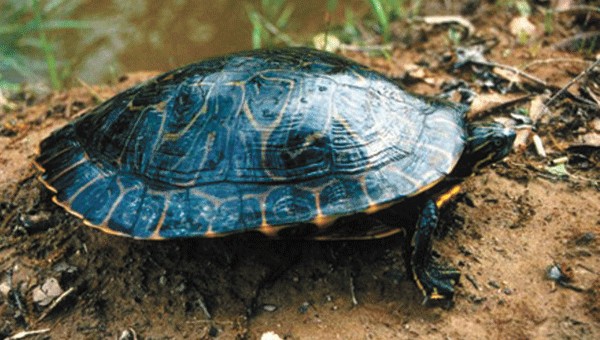Locals help save Alabama’s turtles
Published 12:00 am Thursday, July 5, 2012
For years, turtles harmlessly sunning themselves on logs in Covington County’s waters have had target signs – and dollar signs – painted on their backs.
Depleted turtle populations in Asian countries – primarily China – which use the reptiles for food and medicine, have made them hot commodities on the black market.
But with the help of two local retired LBW Community College instructors, significant changes have now been made to keep the critters where they belong – in Alabama’s waterways.
Alabama has passed one of the toughest commercial harvesting bans on wild turtles and their eggs on both public and private lands. The law, which went into effect in April, cancelled all turtle harvesting permits in the state.
The ban does not extend to turtle farmers, who either raise hatchlings for the pet market or for food. Private landowners can control their turtle populations but they cannot sell them.
Dr. Fred Winkler, along with fellow retired history instructor Tom Steele, was among a group who made a presentation asking for a change to the state in Alabama. The men said they love to spend their time outdoors, and for many years, have noticed the decline in the state’s turtle population.
“One day, we were out looking for fossils in the Conecuh (National Forest) and observed three fellows in kayaks,” said Winkler, who taught biology for 27 years. “They had on waders and were using nets to apprehend the turtles.”
Being the curious sort, Winkler said, the men asked, “Why?”
“They volunteered to tell me they were here from Florida and had a permit to collect turtles,” he said. “They would capture them; box them up and send them – alive – overseas to China, where the market is huge for turtles. Those in China have eaten all their turtles, and now, they want to eat ours.”
Asia has depleted its own turtle species and has been turning to the United States for its supply, said Jeff Miller, conservation advocate, Center for Biological Diversity.
The demand for turtle meat for food and medicine is voraciously consuming more than 2 million wild-caught freshwater turtles a year, Miller said.
Turtle hunters have been moving from state to state as regulations are passed to curtail turtle hunting. Maryland, Georgia, Florida, Texas, South Carolina and Oklahoma have stepped up regulations to protect turtle species, while Kentucky has started monitoring its populations, he said.
And like Winkler explained, with surrounding states closing the door, Alabama has seen a surge in turtle harvesting, said Mark Sasser, non-game wildlife coordinator, Alabama Division of Wildlife and Freshwater Fisheries.
Those in the most demand are striped-neck musk turtles, river cooters, common snapping turtles and all soft-shelled turtles. The reptiles are used for meat, medicine and the pet trade. Turtles fetch hefty prices on the commercial market, either as food or exotic pets. Food turtles can bring $65 apiece, and exotic black knob sawback turtles could sell for as much as $150 for pet collectors.
In Alabama, there are 25 native species of turtles – two of which are federally protected and seven of which are state-protected. The total represents more than half of all the North American species. Wild turtles are slow to reproduce and cannot sustain commercial harvesting, Winkler said.
After observing the men on the river, Winkler said he contacted the state conservation department. He, along with a group of Auburn University officials, was invited to speak to a department of conservation advisory board about the dangers of over-harvesting.
Poachers caught selling turtles in Alabama face a maximum $500 fine and up to a year in jail.
Winkler said he knows people will continue the practice with the amount of profit at stake.
“Someone can make a lot of money doing this,” he said of harvesting the reptiles. “So people will continue to do it, even though it’s illegal. If you see someone on the water collecting these turtles, call the game warden. Before we know it, all these turtles could be gone.”
To report someone illegally harvesting turtles, call the state department of conservation at 1-800-272-GAME.






